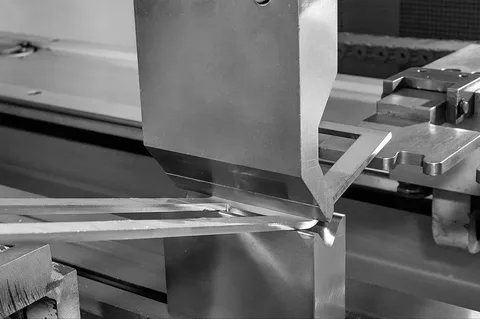Sheet metal fabrication is a critical process in manufacturing, allowing the creation of precise components for various industries. By focusing on precision, businesses can enhance product quality and achieve superior outcomes. This article explores how precision sheet metal fabrication impacts product quality and why it is indispensable in modern manufacturing.
The Role of Precision in Sheet Metal Fabrication
Precision in sheet metal fabrication refers to the meticulous attention to detail during cutting, bending, and assembling metal sheets. Achieving tight tolerances ensures that parts fit perfectly, eliminating the risk of misalignment and functionality issues. When components are fabricated with precision, they contribute to a higher-quality end product, improving reliability and performance.
Precision also minimizes waste, optimizing the use of raw materials. This efficiency translates to cost savings while maintaining superior quality. Modern fabrication techniques, such as laser cutting and CNC machining, play a vital role in achieving this level of accuracy, making precision a cornerstone of high-quality manufacturing.
Enhanced Durability Through Precision Techniques
Precision techniques in sheet metal fabrication improve the structural integrity of products. By accurately shaping and assembling metal sheets, manufacturers can ensure components withstand stress and wear over time. This durability is crucial for industries like aerospace, automotive, and construction, where product longevity is non-negotiable.
Moreover, precise fabrication reduces the likelihood of defects such as cracks or weak points. These flaws can compromise a product’s strength and lifespan. Through controlled processes and advanced machinery, precision fabrication enhances the durability of the final product, providing long-term value to consumers.
Customization and Versatility in Sheet Metal Fabrication
One of the significant advantages of precision sheet metal fabrication is its ability to accommodate customization. Manufacturers can tailor components to meet specific requirements, ensuring that products align perfectly with their intended applications. This level of customization enhances both functionality and aesthetics, setting high-quality products apart in the marketplace.
Precision also enables versatility, allowing the fabrication of complex shapes and designs. Industries such as healthcare, electronics, and renewable energy benefit from this flexibility, as intricate components can be produced without compromising on quality. By leveraging precision techniques, businesses can achieve innovative designs that meet diverse demands.
Quality Control and Consistency in Manufacturing
Quality control is integral to sheet metal fabrication, ensuring that each component meets stringent standards. Precision fabrication reduces variability in production, enabling consistent quality across multiple batches. This consistency is vital for industries relying on uniform components, such as electronics and automotive manufacturing.
Advanced technologies, such as automated inspection systems, contribute to maintaining high standards in precision sheet metal fabrication. These systems identify potential defects early, allowing corrective actions to be taken before assembly. By prioritizing quality control, manufacturers can produce flawless products, enhancing customer satisfaction and trust.
Environmental Benefits of Precision Sheet Metal Fabrication
Precision in sheet metal fabrication not only enhances product quality but also promotes sustainability. Accurate material usage reduces waste, conserving resources and lowering environmental impact. This efficiency aligns with modern eco-friendly manufacturing practices, benefiting both businesses and the planet.
Additionally, precision fabrication supports the use of recyclable materials, contributing to a circular economy. By producing durable, high-quality components, manufacturers can extend product lifespans and reduce the need for frequent replacements. This environmentally conscious approach positions precision sheet metal fabrication as a forward-thinking solution in today’s manufacturing landscape.
Conclusion
Precision sheet metal fabrication is a game-changer in enhancing product quality. Its ability to deliver durability, customization, consistency, and sustainability makes it an essential process across various industries. By investing in advanced fabrication techniques, businesses can create superior products that meet the demands of modern consumers while maintaining high standards of efficiency and environmental responsibility.

